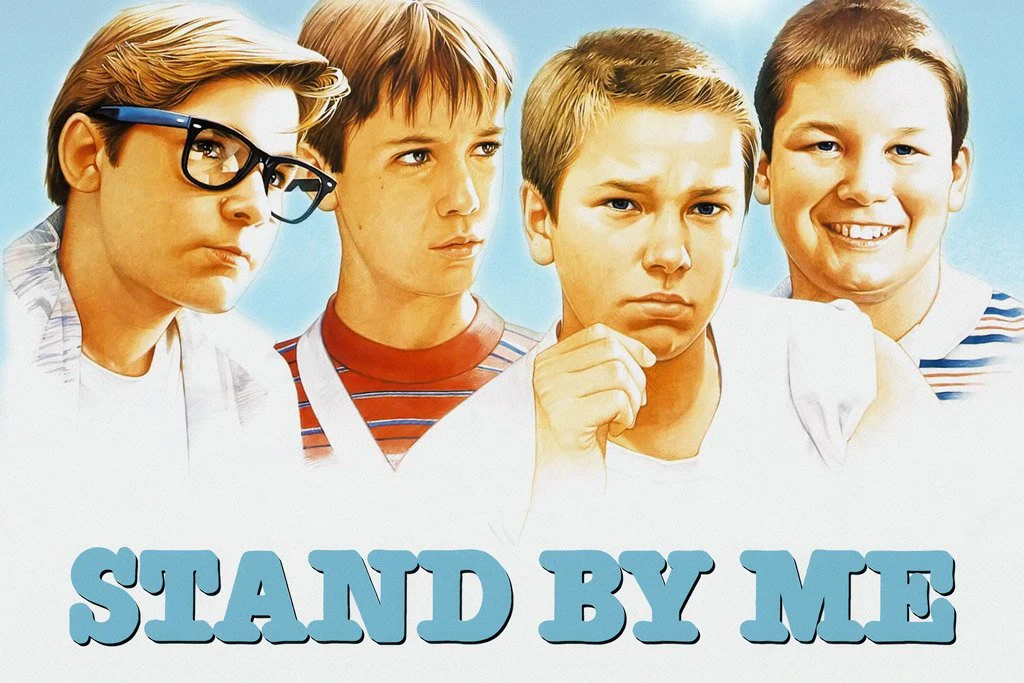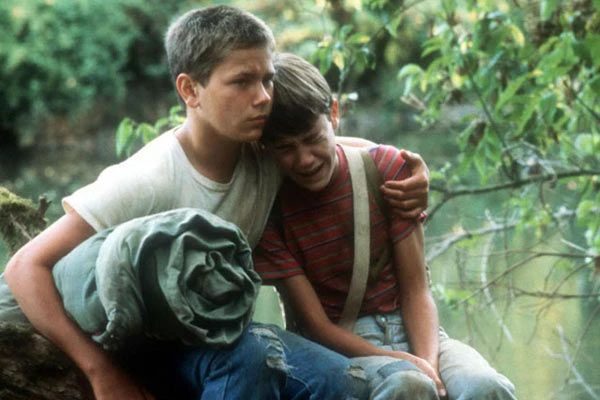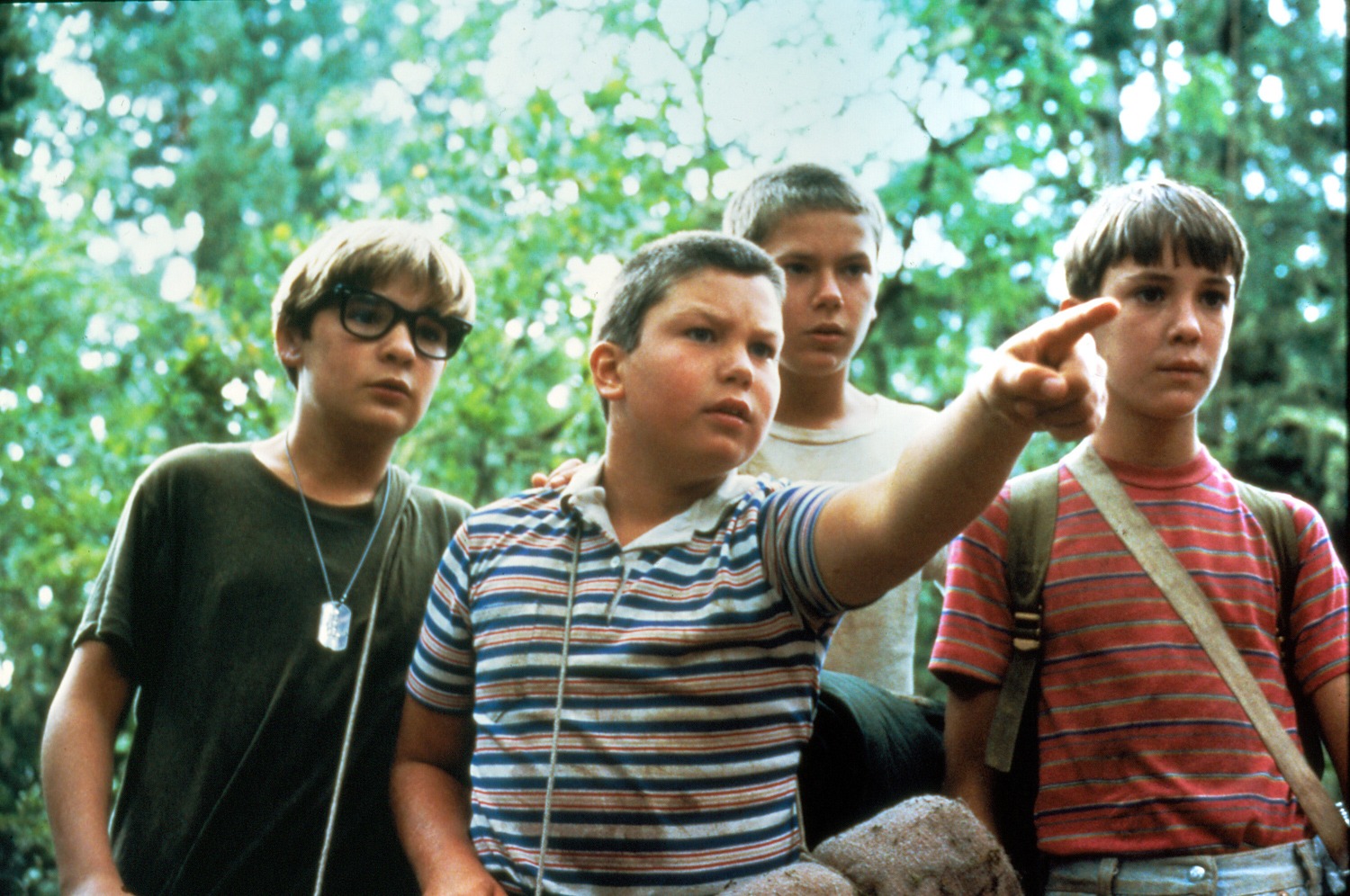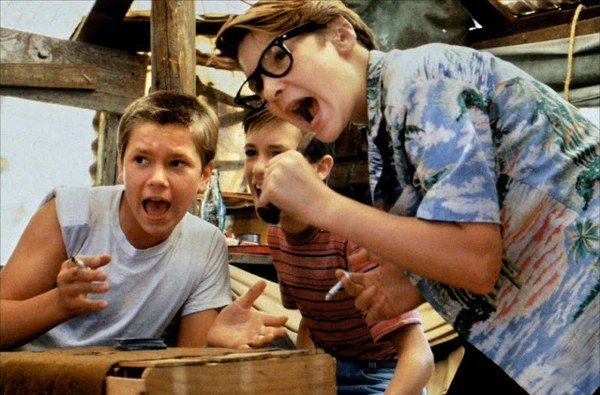Stand by Me (1986)

Stand by Me is a 1986 American coming-of-age drama directed by Rob Reiner. Based on the 1982 novella The Body by Stephen King, the film is set in the fictional town of Castle Rock, Oregon, in 1959. The story follows four boys—Gordie, Chris, Teddy, and Vern—on a journey to find the body of a missing child, which becomes a rite of passage for each of them. The film explores themes of friendship, growing up, and the struggles of adolescence, making it a poignant reflection on youth and self-discovery.
The central plot of Stand by Me revolves around the four friends who, after hearing rumors about the body of a missing child, decide to set off on a trek through the woods to find it. Each boy has his own personal issues that they must confront during their journey. Gordie, played by Wil Wheaton, is a quiet, introspective boy who is grieving the recent death of his older brother. Chris, portrayed by River Phoenix, is a troubled yet loyal friend dealing with the effects of a broken family. Teddy (Corey Feldman) struggles with the emotional scars left by his abusive father, and Vern (Jerry O’Connell) is the most naïve and insecure of the group. Through their adventure, the boys learn about themselves and each other, solidifying their bonds of friendship.
One of the main themes of Stand by Me is the power of friendship. The boys’ journey to find the body is more than just a physical trip—it is an emotional journey where they support one another through personal challenges and difficult moments. The friendship they share is their anchor, helping them navigate the turbulence of growing up. Their trust and loyalty to each other are exemplified when they protect one another from bullies, face their fears together, and share personal secrets. The film suggests that true friendship can be a source of strength and solace during difficult times.

The film also delves into the theme of loss and the process of growing up. Gordie’s relationship with his deceased brother Denny is a central aspect of the story. Gordie constantly feels overshadowed by his brother’s death and the emotional distance it has created between him and his parents. Throughout the journey, Gordie learns to accept his grief and begins to understand that he can carve out his own identity. His personal growth is a key moment in the film, showing how children must come to terms with loss and the complexities of their emotions as they mature.

The cinematography and visual style of Stand by Me play an important role in enhancing the nostalgic atmosphere of the story. The film uses wide shots of the beautiful Oregon countryside to reflect the vastness of the boys’ journey, both physically and emotionally. The movie’s warm color palette and the slow pacing allow for moments of reflection, creating an intimate connection between the audience and the characters. The use of voiceover narration by the adult Gordie (Richard Dreyfuss) also adds a layer of reflection and nostalgia, as he looks back on his youth with a sense of both longing and wisdom.

In conclusion, Stand by Me is a timeless coming-of-age story that resonates with audiences of all ages. Its exploration of friendship, loss, and personal growth is universal, and the performances by the young cast—particularly River Phoenix and Wil Wheaton—are heartfelt and memorable. Rob Reiner’s direction and the film’s poignant script make it a powerful and emotionally resonant film. Stand by Me is not only a reflection on the innocence of youth but also a reminder of the enduring bonds of friendship that shape who we become as adults.











